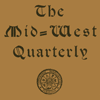
Mid-West Quarterly (1913–1918)
Date of this Version
September 1914
Document Type
Article
Abstract
In the company of scholars and investigators which Daniel Coit Gilman gathered at Baltimore in the seventies and eighties was Charles S. S. Peirce, son of the Harvard mathematician, Benjamin Peirce, and considered by Sylvester (surely a capable judge) “a far greater mathematician than his father.” But great though his mathematical powers were, it is not they alone which chiefly distinguished him among the scientists of his generation. Mathematics was simply one of the many fields of thought tilled by his active brain. At Harvard it was in chemistry that he had chiefly distinguished himself, but it might as well have been in physics. While lecturing at the Johns Hopkins, he was also conducting experiments for the U. S. Coast Survey. But it is perhaps for his researches in symbolic logic that he is chiefly known, being, indeed, the inventor of the logic of relatives, since developed by Russel into the logic of relations. He himself considered more important his theory of inductive reasoning; which certainly is more understandable and usable, for the logic of relatives is the acme of technicality and abstraction. As an indication of the power of this logic, let it suffice to say that in terms of it all of the two hundred and sixteen varieties of algebra classified by his father can be expressed, among which ordinary algebra, the algebra of imaginaries, and quaternions are special cases. Further, any algebra whatever can be brought under the domain of this system.


Comments
Published in The Mid-West Quarterly, Volume II, no. 1, October 1914.